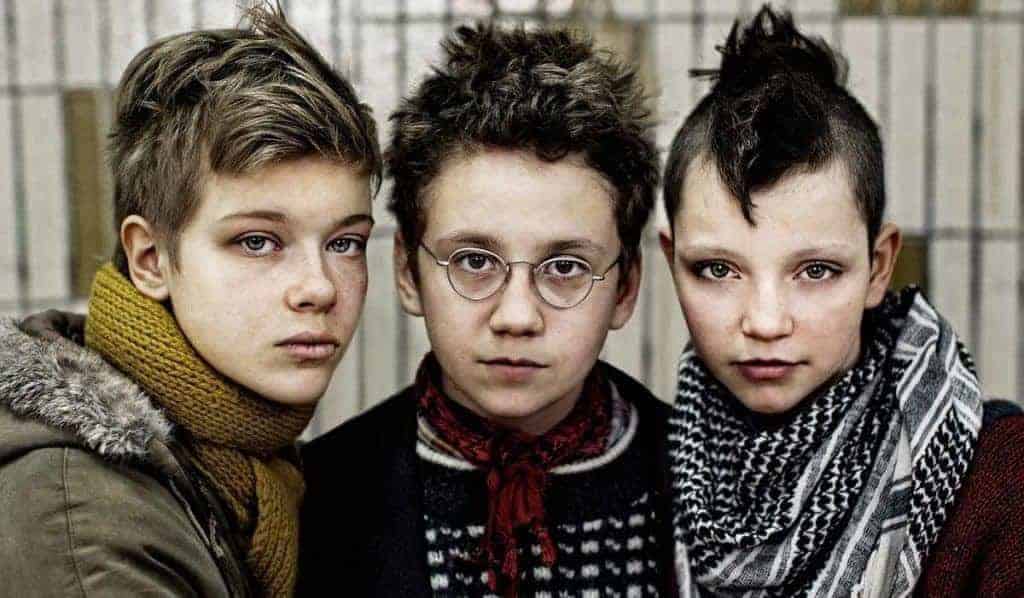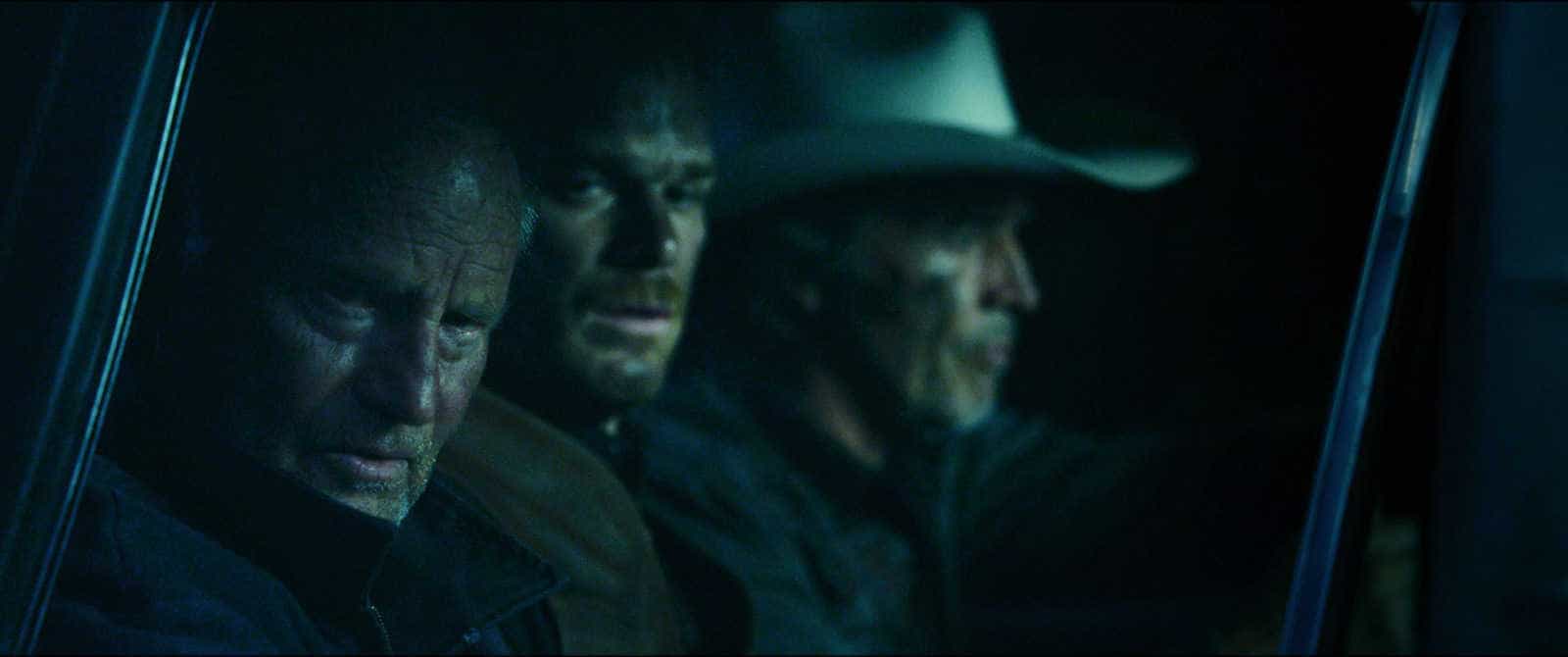We Are The Best!, the uproariously funny and buoyant new film from Swedish auteur Lukas Moodysson, follows a trio of teenage girls who form a punk rock band.
The trio of girls that form a punk rock band in the uproariously funny and buoyant We Are The Best! are not your average movie teenagers, but they are exactly what real-life teenagers are like. They’re smart, gutsy, opinionated, and witty, and they have the ups-and-downs of real friendships. More than any other film I’ve seen, this latest from Swedish auteur Lukas Moodysson (Fucking Amal), based on a graphic novel by his wife Coco, best captures what it felt like to be a teenage girl – the best and the worst of it – even though it takes place in Stockholm twenty years before I became a teenager in Canada.
Moodysson always shoots from the girls’ perspective, keeping the camera at eye level, which forces us to take them seriously, even if they’re talking about how they should “influence” their newest Christian band member “away from God”, in the spirit of punk. The film doesn’t have much of a plot, which allows Moodysson to focus on moments of truth between the three friends, and above all, to let them win us over with their intelligence and resilience.

At the centre of the film is pixie-cropped, bespectacled Bobo (Mira Barkhammar), a quiet thirteen-year-old girl, who spends most of her time at the home of her best friend, the pretty, mohawk-sporting Klara (Mira Grosin), who shares her love of punk. While Bobo is being raised by an indifferent single mother who can barely be bothered to keep track of her whereabouts, Klara comes from a more stable family, which also makes her the more confident one of the pair. Klara tends to hold the balance of power in their friendship: when they decide to start a punk band, it’s Klara who decides which instrument each plays.
While they have the makings of a catchy first song, “Hate the sport”, dedicated to the gym teacher they can’t stand, neither of them can play an instrument. Enter Hedwig (Liv LeMoyne). She’s a social outcast, but an excellent classical musician and guitarist, whom they persuade to join their band. Bobo and Klara’s attempts to get Hedwig as invested in punk as they are, including cutting her long locks off, border on unsavory peer pressure, but they also provide her with love and support.
Read more: Review: In The Here After, the outside world is a prison >>
Hedwig provokes some tension between the friends, partly because she’s a year older and more mature; she refuses to participate in some of their shenanigans, like begging for money for an electric guitar in a subway station by telling a sob story, to strangers, about alcoholic parents. But Hedwig’s maturity is also an asset when Bobo and Klara start fighting over a boy in a punk band, with a song titled “Krushchev and Raegan — fuck off!”; she ultimately gets them to stop by reminding them he lives in the suburbs and should be pitied. Hardly a surprising jab in a film by Moodysson, whose directorial debut, Fucking Amal, declared its hatred for the small town, Amal, where it took place, in its title.
Although the film is set in the 1980s, not much has changed when it comes to cultural expectations for gender roles. The men that run the community centre where the girls rehearse instinctively condescend to them, and part of what makes you love these girls is the way they handle it. When the centre gets a new electric guitar, the men patronizingly offer to show Hedwig some chords; she expresses hesitation about never having played anything but acoustic guitar. As the handheld camera swings back-and-forth from the cocky men to the girls giggling at their patronizing tone, within minutes, Hedwig’s telling them the guitar is out of tune, fixing it, and playing something more complicated than they could dream. It’s subtle and unassuming, but she lets them have it — and the other girls delightedly praise her for it later.
Read more: Review: An Indigenous Swedish girl is caught between two worlds in Sami Blood >>
Which is not to say that they’re invulnerable: far from it. When the strong and smart Bobo accidentally cuts herself and has blood everywhere, she starts screaming she’s going to die, and won’t calm down until her friends give her a long conciliatory hug. Bobo’s unstable home life can make her emotionally needy: there are some tender scenes between the friends, reassuring each other of their devotion. And it does gets under their skin when everyone they meet tells them they’re ugly because they don’t “look” the way girls are supposed to, but their unwillingness to conform is part of their charm.
It’s hard to describe the film without making it sound precious (the international trailer is no help), and yet it couldn’t be farther from it. The girls can exhibit a much milder, more realistic version of Mean Girls, show the resilience of youth just like Mason in Boyhood, spout plucky witticisms like Juno, but at a realistic rate, and be vulnerable like the characters in Moodysson’s Fucking Amal. But what makes the film so wonderful, and one of the best pictures of the year, is that these girls are very much their own people: tough to categorize, unlike anyone you’ve seen on-screen before, but completely recognizable.
Read more: Review: Miss Impossible is a crowd-pleasing coming-of-ager>>



